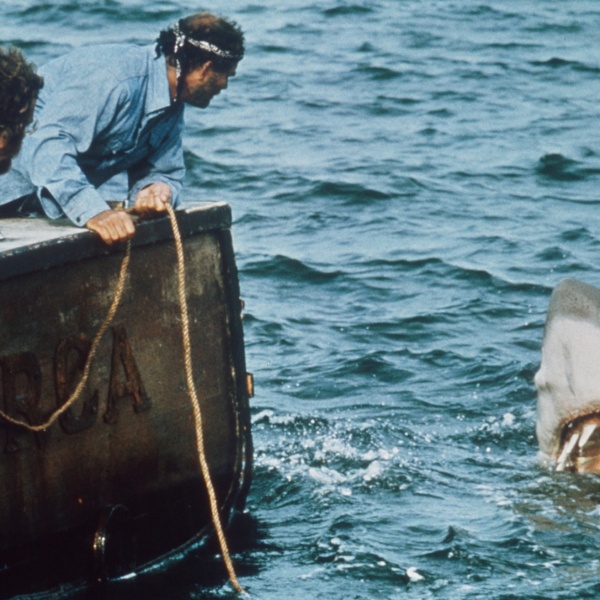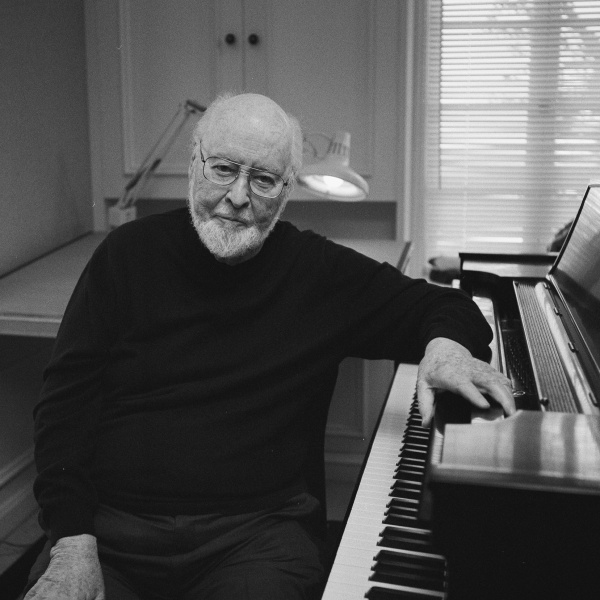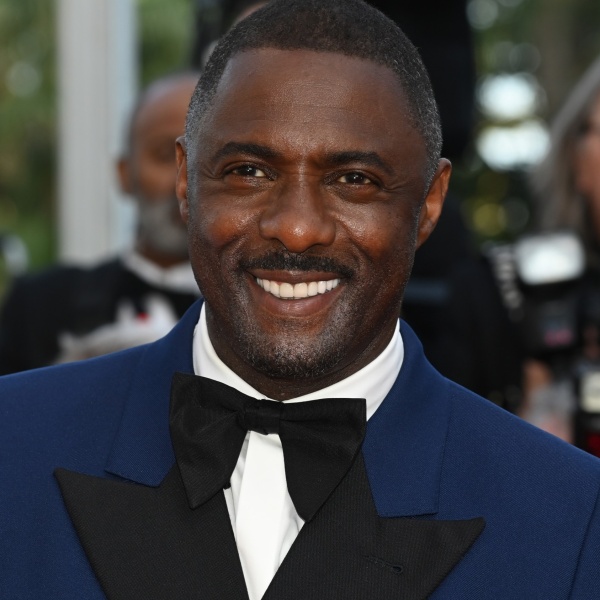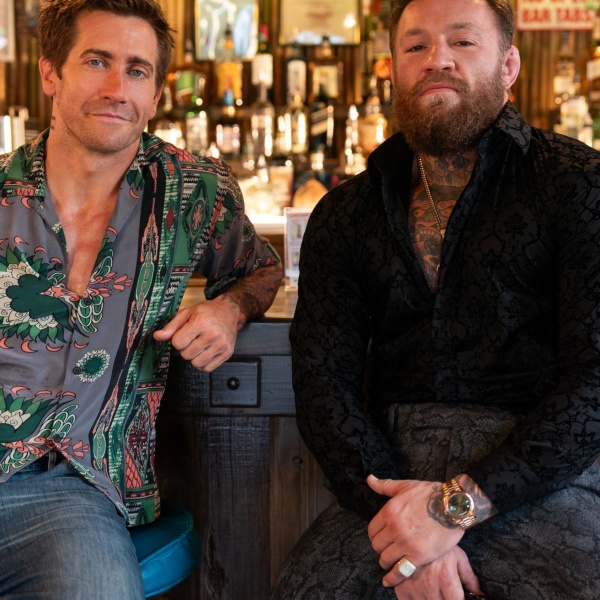[Editor’s note: This article was published in May 2021 and has been updated multiple times since.]
We’ve all heard it before: the book was better. For the most part, it’s true. The best literary adaptations mine something newly cinematic from their source material; at worst, they’re so doggedly faithful to the text that the end result feels nervously redundant or like an overly gutsy cash grab.
We’ve seen it on screens big and small. Take Joe Wright’s notorious 2020 Netflix thriller “The Woman in the Window”: a film that loop-de-looped through so many ups and downs — from uneasy test screenings and rewrites and re-shoots to a big-money handoff from now-defunct Fox 2000 to the streamer — it never stood a chance of coming out the other end as anything less than mangled. The story of a boozy agoraphobic voyeur played by Amy Adams, the film was adapted from an already controversial page-turner by A.J. Finn, an author whose rocky backstory could easily fill its own movie (or even a limited series).
Last year, psychosexual-thriller auteur Adrian Lyne coughed up a Patricia Highsmith adaptation so bad that, may she rest in peace and not be alive to give notes, might send its author reeling. “Deep Water” was an incomprehensible cluster of decidedly non-ethical polyamory, murder, and snails led by Ben Affleck and Ana de Armas on Hulu. Keen-eyed readers disappointed with the disheveled melodrama might be inclined to go back to the source material and figure out where it all went wrong.
Plenty has gone awry on the TV side of adaptations too, with George R.R. Martin feeling left in the cold by the finale of HBO’s “Game of Thrones” and vowing to make it right with his ensuing series of follow-up “Song of Ice and Fire” books. Whenever they may come. And though it’s somehow not done yet, Hulu’s Elisabeth Moss-starring “The Handmaid’s Tale” adaptation — and all increasingly batshit narrative decisions therein — inspired Margaret Atwood to repeatedly remind fans she has no control over the show.
To get you in the spirit of risky, will-they-fail literary adaptations in a fall full of them, take a look back at some of the most controversial book-to-film revamps ever, including ones deplored by audiences as well as disowned by their authors. (Titles are listed in no particular order.) Then, try our guide to The 15 Best Book-to-TV Adaptations.
With editorial contributions from Wilson Chapman.
-
“Cool Hand Luke” (1967)

Image Credit: Courtesy Everett Collection Easily the most iconic line of the 1967 Paul Newman-in-prison film “Cool Hand Luke” — “What we’ve got here is failure to communicate…” — was brilliantly delivered by Strother Martin. But said line doesn’t appear at any point in the original Donn Pearce novel, and Pearce explained that he didn’t write the line. Although the author penned the initial draft of the script, Frank R. Pierson was hired to rewrite it and Pearce was critical of his changes. He called the “failure to communicate” moment “a stupid fucking line,” saying that a prison captain would be a redneck who would never say anything so sophisticated.
Pearce had several other issues with the film and how it adapted the book, which was inspired by his own experiences in a Florida prison. He hated the casting of Newman as Luke, feeling that the sex symbol was too “small” and “wispy” to play the character. In a 2005 interview with Esquire, Pearce admitted he punched someone during his last day on set playing a minor character over the frustration of shooting, and that he was never invited to the film’s premiere. Pearce also claimed that he received very little royalties for the film’s breakout success. —WC
-
“V for Vendetta” (2006)

Image Credit: ©Warner Bros/Courtesy Everett Collection You could make an entire list out of the Alan Moore adaptations that the legendary comic book writer has trashed. The “Watchmen” writer so famously detests adaptations of his work that he’s essentially stopped watching them all together. One film adaptation he did have specific criticisms of was James McTeigue and the Wachowskis’ 2006 film version of “V for Vendetta.”
Moore’s original graphic novel from 1988 is a dystopian story about a future fascist Britain and the masked V (played in the film by Hugo Weaving), who attempts to destroy a totalitarian government in the country. While writing the comic, Moore based the political situation of his imagined future Britain very obviously on the Margaret Thatcher administration. Before the film version came out, Moore read the script, which makes several changes that deemphasizes the politics of the original comic and adds parallels to the George W. Bush administration. He disagreed with the changes so strongly that the writer requested his name be removed from the film’s credits.
“‘V for Vendetta’ was specifically about things like fascism and anarchy. Those words, ‘fascism’ and ‘anarchy,’ occur nowhere in the film. It’s been turned into a Bush-era parable by people too timid to set a political satire in their own country,” Moore said in an interview with MTV. “It’s a thwarted and frustrated and perhaps largely impotent American liberal fantasy of someone with American liberal values [standing up] against a state run by neo-conservatives — which is not what ‘V for Vendetta’ was about.” —WC
-
“I Know What You Did Last Summer” (1997)

Image Credit: ©Columbia Pictures/Courtesy Everett Collection The late ’90s horror hit “I Know What You Did Last Summer” is a very, very loose adaptation of the original 1973 novel by the late Lois Duncan. The movie took the basic premise of the book, about four teens who accidentally kill someone in a hit and run, and absolutely nothing else – throwing out the film’s mystery drama about the character’s guilt in favor of a fairly straightforward slasher film. The result proved extremely financially successful, but received mixed reviews and Duncan was furious about the changes. Much of her dislike toward the slasher genre came from the fact that her own daughter Kaitlyn Arquette was murdered in a 1989 case that remained unsolved until 2022, several years after Duncan herself died.
“What I, personally, have a problem with are the stories (usually on television where action takes the place of introspection) where violence is sensationalized and made to seem thrilling rather than terrible,” Duncan said in a 2002 interview. “I was appalled when my book, ‘I Know What You Did Last Summer,’ was made into a slasher film. As the mother of a murdered child, I don’t find violent death something to squeal and giggle about.” —WC
-
“The NeverEnding Story” (dir. Wolfgang Petersen, 1984)

Image Credit: ©Warner Bros/Courtesy Everett Collection “The NeverEnding Story” is a beloved touchstone of kitschy ’80s children’s fantasy, but its very existence left Michael Ende, the author behind the original 1979 novel, horrified. Ende was paid $50,000 for the book’s rights and worked with director Wolfgang Petersen on a script treatment. But the writer later claimed that Peterson rewrote the script without informing him and objected to numerous changes made.
Ende specifically objected to the film’s ending, in which main character Bastian (Barret Oliver) is able to recreate the fantasy world of Fantasia with little effort and the luck dragon Falkor (Alan Oppenheimer) is able to cross over to the real world. Ende called the changes “revolting.”
He hated the film script so much that he attempted to force the producers to cancel the movie or change the title so it would no longer be associated with his original work. When that didn’t happen, he filed a lawsuit to attempt to stop the movie from being made, saying that “my moral and artistic existence is at stake in this film.” The lawsuit failed and Ende requested that his name be removed from the film to further distance himself. —WC
-
“A Wrinkle in Time” (2003)

Image Credit: ABC Author Madeleine L’Engle died in 2007, 11 years before her universally beloved children’s book “A Wrinkle in Time” first hit the big screen with Ava DuVernay’s blockbuster adaptation. But she lived to see the story of teenage Meg Murray and her journey through time and space to rescue her father hit the small screen with a 2003 television film adaptation that aired on ABC.
John Kent Harrison directed the Disney production, which featured Alfre Woodard as the otherworldy Mrs. Whatsit. Critics gave the film mostly negative reviews, but L’Engle particularly disliked it. The author trashed it before it even came out and, in an interview with Newsweek the week before the film aired on ABC, the said she “glimpsed” the final product, and it met her expectations: “I expected it to be bad, and it is.” —WC
-
“Mary Poppins” (1964)

Image Credit: Courtesy Disney/Everett Collection One can only imagine what P. L. Travers might have thought of “Saving Mr. Banks”: a 2013 Disney-produced historical drama that softens — and audaciously fictionalizes — the Australian-born author’s disturbed reaction to the 1964 musical movie adaptation of her work. With Emma Thompson playing Travers opposite Tom Hanks as Walt Disney, “Saving Mr. Banks” thoughtfully considers the themes of “Mary Poppins,” as well as their relation to Travers’ own troubled childhood, before injecting a happy ending that never occurred (all while further propping up their now-streaming-on-Disney+ classic IP. Dastardly!) Contrary to “Saving Mr. Banks,” Travers famously despised the final “Mary Poppins” product, with particular ire for its animated sequences. She reportedly demanded Walt Disney remove them from the film even after a widely attended premiere, but of course he’d secured final cut approval long before. —AF
-
“The Handmaid’s Tale” (2017-present)

Image Credit: Courtesy George Kraychyk/Hulu/Everett Collection To say Hulu’s serialized take on Margaret Atwood’s “The Handmaid’s Tale” has gone off the rails would be an embarrassing understatement. (An actual train mowed down half the supporting cast in Season 4!) The Emmy-winning show enjoyed the author’s support in Season 1, but Elisabeth Moss’s exhausting hero and her increasingly ridiculous plot developments left the author nonplussed.
“I’ve done some yelling, but it was fairly effective yelling,” Atwood told the New York Times in 2019. “I think it’s a bit of a problem for people that know about real totalitarianism that some of these characters have survived for as long as they did. Surely they would have been shot by now. Quite a few too many people know what June has been up to.”
Atwood was similarly not a fan of the regularly forgotten 1990 movie adaptation, starring Natasha Richardson, citing its lack of narration as a particularly obvious missed opportunity: a mistake the show wouldn’t repeat. —AF
-
“My Foolish Heart” (1949)

Image Credit: Everett Collection There’s a reason you don’t see any “Catcher in the Rye” adaptations floating around. J.D. Salinger’s work tends toward the unfilmable (and his estate is precious about the material, anyway). So Mark Robson’s 1949 romantic drama about an unhappily married woman (Susan Hayward) reminiscing about her first love (Dana Andrews) surely wasn’t going to work either. For one, the story is all dialogue, which doesn’t prove great groundwork for a cinematic adaptation. Salinger reportedly had an acidic reaction to the movie, as explained in the oral biography of the author, “Salinger”:
“He was furious. And that pretty much took up that evening because he was furious. He didn’t understand how intelligent people — of course he’d decided that once you hit the California border there wasn’t a brain left — but how anybody could take his story and make such sentimental hash out of it. He felt it had nothing to do with this story, which of course had such a different message. It was trash, and he didn’t want anything to do with it.”
-
“Breakfast at Tiffany’s” (1961)

Image Credit: Everett Collection “Breakfast at Tiffany’s” is one of those movies you’ll always stay for (as of this writing, I’m already inclined to go stream it) because of Audrey Hepburn’s flinty, quirky performance as flaneur Holly Golightly and the big romantic swoon of the film’s knockout ending. But, as if it weren’t already problematic enough due to the long and rightfully despised casting of Mickey Rooney as a Japanese man, author Truman Capote wasn’t a fan of the movie. It was, after all, based on his much darker and more morally ambiguous novella, which cast Holly as a straight-up escort, and also a pot smoker.
“The book was really rather bitter,” he told Playboy in 1968, “and Holly Golightly was real—a tough character, not an Audrey Hepburn type at all. The film became a mawkish valentine to New York City and Holly and, as a result, was thin and pretty, whereas it should have been rich and ugly. It bore as much resemblance to my work as the Rockettes do to Ulanova.”
-
“One Flew Over the Cuckoo’s Nest” (1975)

Image Credit: Everett Collection “One Flew Over the Cuckoo’s Nest” is widely regarded as one of the greatest films of all time, but not for author Ken Kesey, who penned the generation-defining source material. Word has it he wasn’t happy that the film wasn’t told from Chief Bromden’s perspective, but word also has it he never actually saw the film. That’s because, in pre-production, there were major snafus. Here’s how Michael Douglas describes what happened with Kesey:
“My producing partner, Saul Zaentz — the owner of Fantasy Records and a voracious reader — felt an affinity with Kesey. After Larry and I made a first attempt, Saul asked Kesey to write a screenplay and promised him a piece of the action. But like a lot of novelists trying to adapt their own material, it didn’t work out. We fell out with him after that. It was our only longstanding, painful issue. We got in to a financial dispute — it was silly, but maybe it was his way of defending his ego.”
-
“Myra Breckinridge” (1970)

Image Credit: 20th Century-Fox Film Corp. All rights reserved/courtesy Everett Collection As Gore Vidal himself put it about this sleazy adaptation of his 1968 novel, “’Myra Breckinridge’ is in many ways considered the worst film ever made — for which I often get credit, though I had nothing to do with it.” Despite a wild cast featuring Raquel Welch, Mae West, John Huston, Rex Reed, and Farrah Fawcett, this story of a trans woman (played by Welch) thudded upon arrival, with Time magazine calling it “as funny as a child molester.” Of the film, Vidal said it was “not just a bad movie, it was an awful joke.”
-
“A Clockwork Orange’ (1971)

Image Credit: Everett Collection The legacy of “A Clockwork Orange” is unimpeachable at this point, but Anthony Burgess, the author of the book Stanley Kubrick adapted, wasn’t so keen on the film after it began to draw criticisms for its heightened violence in 1971. According to Robert Hofler’s book “Sexplosion,” Burgess said, “I realized, not for the first time, how little impact even a shocking book can make in comparison with a film. Kubrick’s achievement swallowed mine, whole, and yet I was responsible for what some called its malign influence on the young.”
In 1987, Burgess adapted his dystopian 1962 novel to the stage, and included this telling stage direction: “A man bearded like Stanley Kubrick comes on playing, in exquisite counterpoint, ‘Singin’ in the Rain’ on a trumpet. He is kicked off the stage.”
-
“The Shining” (1980)

Image Credit: Everett Collection Stephen King’s disdain for what he felt was Stanley Kubrick’s butchering of his novel “The Shining” is Hollywood lore by now. The author likened the film to a “big beautiful Cadillac with no engine inside it.” He also thinks that Kubrick (and Jack Nicholson) botched Jack Torrance’s tragic character arc as an abusive alcoholic who loses his marbles, instead turning him into a cold psychopath. He also thinks the film reduces Wendy (Shelley Duvall) to a shrieking victim. Reviews were mixed at the time but its stature is colossal at this point. King prefers the cheesy 1997 miniseries spin starring Rebecca De Mornay and Steven Weber.
-
“Dune” (184)

Image Credit: Universal/courtesy Everett Collection “Dune” has eclipsed its original reputation to become something of a cult entry in director David Lynch’s vast filmography, but the filmmaker has famously, repeatedly excoriated his own movie. Alejandro Jodorowsky, who tried to mount the movie in the ’70s, has similarly decried both Lynch’s version as horrid and the book by Frank Herbert as unfilmable. Denis Villeneuve has big (and so far unfilled) shoes to fill with his version finally coming out in October.
-
“The Bonfire of the Vanities” (1990)

Image Credit: Warner Bros. / Courtesy Everett Collection The trainwreck making of Brian De Palma’s ’80s Wall Street time capsule “The Bonfire of the Vanities,” based on Tom Wolfe’s tome, was such a disaster that it inspired another book, “The Devil’s Candy: ‘The Bonfire of the Vanities’ Goes to Hollywood” by Julie Salamon. A box-office implosion, this was a case of studio meddling, actors’ musical chairs (De Palma intended almost every role for a different actor), and a movie that resulted as a crude caricature of the milieu it intended to satirize.
-
“The Scarlet Letter” (1995)

Image Credit: Buena Vista Pictures/courtesy Everett Collection “The Mission” and “The Killing Fields” director Roland Joffé didn’t score with this adaptation of Nathaniel Hawthorne’s scorching classic, which earned seven Razzie nominations, winning for Worst Remake or Sequel. This story of Puritan life in a Massachusetts Bay Colony was derided for the clunky script and performances from Demi Moore, Robert Duvall, and Gary Oldman, plummeting at the box office and earning horrid reviews.
-
“American Psycho” (2000)

Image Credit: Lions Gate/courtesy Everett Collection Bret Easton Ellis’ eyeroll-inducing comments about how “women can’t direct” (which he tweeted after seeing Andrea Arnold’s “Fish Tank”) aside, Mary Harron’s “American Psycho” is a brilliant adaptation of his twisted novel about an investment banker turned psycho killer. But Ellis has been dismissive of the film for other reasons, telling Film School Rejects, “The movie is fine, but I think that book is unadaptable because it’s about consciousness, and you can’t really shoot that sensibility.” Eliis criticized the film for confusing audiences as to whether Patrick Bateman’s (Christian Bale) murders were all in his head or not.
-
“Battlefield Earth” (2000)

Image Credit: Warner Bros./ Courtesy: Everett Collection It’s no secret that Roger Christian’s adaptation of Scientology founder L. Ron Hubbard’s 1982 sci-fi novel is widely known as one of the worst movies ever made. Scathing reviews and bad word of mouth amounted to a costly box office flop. Screenwriter J.D. Shapiro told the New York Post, “The only time I saw the movie was at the premiere, which was one too many times.” The movie went on to sweep the Razzie Awards, with seven wins including Worst Picture and Worst Actor for John Travolta.
-
“The Time Machine” (2002)

Image Credit: Warner Brothers/courtesy Everett Collection H.G. Wells’ sci-fi classic was much better adapted to the screen with George Pal’s 1960 version, whose screenplay served partly as the basis for H.G.’s great-grandson Simon Wells’ 2002 version. Though it received a decent box office return and even an Academy Award nomination for Best Makeup (losing to “Frida”), the film was despised by critics, who found the story’s transplant from London to New York, and the injection of a mawkish romantic subplot unsatisfactory.
-
“The Lovely Bones” (2009)

Image Credit: Paramount Pictures/courtesy Everett Collection Peter Jackson’s “The Lovely Bones” is hardly the most adored film in Peter Jackson’s filmography. It reduces the lyrical and haunted imagery of Alice Sebold’s hugely beloved bestseller to a candy-colored vision of the afterlife. (The story is, after all, about a young girl who is raped and murdered and then proceeds to watch her family grieve from heaven.) Originally, Lynne Ramsay (an edgier choice) was set to direct the book, but stepped away due to creative disputes.
“I think that book was a bit strange, because I saw a few chapters before the book was finished, and thought this was [a] super interesting idea, and then the book came out and became so big that I almost couldn’t change it, and I was going in a way that was quite different,” Ramsay said. “People would expect it to be exactly like the book. I wasn’t sure if that was going to make the best film. The idea was fantastic and I’ve done a few drafts and even if you don’t make something, you learn from that.”
-
“The Hobbit: An Unexpected Journey” (2012)

Image Credit: Warner Bros. Pictures/Courtesy Everett Collection Peter Jackson’s mounting of J.R.R. Tolkien’s original “Hobbit” novel (ultimately into three disparate parts) has its loyalists, but the movie’s 3D Red Epic-shot visuals at a 48 fps frame rate turned off a lot of viewers. The film trilogy grossed nearly $3 billion at the box office, sure, but its eminence came nowhere near the wildly successful “Lord of the Rings” trilogy that preceded it. The Guardian’s Peter Bradshaw wrote, “After 170 minutes, I felt that I had had enough of a pretty good thing. The trilogy will test the stamina of the non-believers, and many might feel … that the traditional filmic look of ‘Lord of the Rings’ was better.”
-
“The Giver” (2014)

Image Credit: David Bloomer/©Weinstein What could’ve been the start of a franchise based on Lois Lowry’s beloved dystopian young adult novel ended up sputtering at the box office and with critics. Even a director like Phillip Noyce, and stars including Jeff Bridges, Meryl Streep, Alexander Skarsgard, Katie Holmes, and (yes) Taylor Swift, couldn’t wrest this flat adaptation from doom, leaving many of the novel’s provocative ideas on the cutting room floor.
-
“The Girl on the Train” (2016)

Image Credit: Universal Pictures /Courtesy Everett Collection A film about Emily Blunt as a boozy divorcee who drunkenly spies on people during her commute sounds compelling enough, but Tate Taylor’s adaptation fails to capture the lurid pull of Paula Hawkins’ bestseller. It isn’t confidently trashy enough to embrace the book’s more tawdry aspects, nor well-made enough to pull off its solemn, self-serious vibe as a bidding Oscar contender. Though there is a great scene early on of a very soused Blunt delivering a lacerating monologue to herself in the mirror, vowing to smash her husband’s lover into the floor. It’s a psychotic and committed performance in a dour movie.
-
“The Goldfinch” (2019)

Image Credit: Warner Bros. / courtesy Everett Collection Adapting a Donna Tartt epic is a daunting task — you don’t see any “The Secret History” movies or miniseries anywhere, do you? — and “The Goldfinch” turned out to be a two-and-half-hour casualty of those futile efforts. Director John Crowley is competent enough, having previously delivered the Best Picture-nominated “Brooklyn,” so what went wrong here? The movie is inert, flattening the Bildungsroman journey of Theo Decker (Ansel Elgort) into a saccharine opus that lurches ever onward through overwrought craft and performances, right down to Nicole Kidman’s wig. It landed with a thunderous splat at the 2019 Toronto International Film Festival.
-
“Game of Thrones” Finale (2019)

Image Credit: HBO Two years after the series finale, HBO’s “Game of Thrones” continues to generate controversy over where its characters and storylines headed in the last episode, “The Iron Throne.” Those bummed about the conclusion to the eight-season show include George R.R. Martin, author of the “A Song of Ice and Fire” source books. Martin has been public about feeling left in the cold by the series’ ending, which wrapped in 2019 while his version of the story is, in fact, not over: He’s still churning away at the sixth book, “The Winds of Winter.”
“Looking back, I wish I’d stayed ahead of the books,” Martin said. “My biggest issue there was when they began the [TV] series, I had four books already in print, and the fifth one came out just as the series was starting in 2011. I had a five-book head-start, and these are gigantic books, as you know; I never thought they would catch up with me, but they did. They caught up with me and passed me.”
Still, he’s optimistic about the prequel series “House of the Dragon,” which should ease any bad blood between the author and HBO. “The writing, the directing, the acting all look terrific,” he said of recent rough cuts.
-
“Into Thin Air: Death on Everest” (1997)

Image Credit: Columbia Tristar/Courtesy Everett Collection Intrepid writer and mountaineer Jon Krakauer is feeling some page-to-screen redemption with the ongoing FX adaptation of his true-crime nonfiction tome “Under the Banner of Heaven.” But the author recently told IndieWire that he felt “burned” by the 1997 ABC straight-to-TV movie “Into Thin Air: Death on Everest,” an adaptation of his famed retelling of his disastrous 1996 experience climbing Mount Everest. “They asked me to be a consultant and they didn’t listen to any of my consulting and it was awful. It was sickening. It was not trusting the intelligence of the viewers, having to overwrite everything and just beat you over the head with it,” he said. He told the LA Times, “It’s total bull … Anyone who goes to that movie and wants a fact-based account should read ‘Into Thin Air.’”
-
“Willy Wonka and the Chocolate Factory” (1971)

Image Credit: Everett Collection Roald Dahl may have made peace with Mel Stuart’s beloved, candy-colored classic musical “Willy Wonka and the Chocolate Factory” by the end of his life, but he notoriously hated the movie at the time. While the author was paid a cool $300,000 to write the film and retained full screenwriting credit, the script underwent major rewrites at Paramount with scribe David Seltzer, uncredited. Dahl also felt the movie focused too heavily on loopy chocolatier Wonka (Gene Wilder), understandably because his original 1964 children’s book was called “Charlie and the Chocolate Factory.” Dahl also felt frustrated with the casting of Wilder, an American actor whom he felt didn’t portray the very British eccentric imagined by the author. Dahl wanted an idiosyncratic British actor more along the lines of Spike Milligan or Peter Sellers.
-
“The Time Traveler’s Wife” (2022)

Image Credit: Courtesy Macall Polay/HBO Max/Everett Collection Here’s a case where the readers/viewers and the author disagree. In the post-lockdown, too-much-TV deluge, HBO’s “The Time Traveler’s Wife” was so forgettably bad that it barely registered as worth discussing. (The acting, the dialogue, the pacing, a mess!) But while disappointed fans lambasted the swing-and-a-miss limited series — with many citing the inherent creepiness of a naked time-traveling man meeting with a child in a field as something at least somewhat better addressed by the 2009 movie, starring Rachel McAdams and Eric Bana — author Audrey Niffenegger stands by the Rose Leslie and Theo James-led series.
“You can never exactly replicate a book,” Niffenegger told Forbes, praising creator Steven Moffat’s ambition and understanding of her work. “You can’t just breathe it on to the screen. But I feel like they really gave it their all. It’s edgy, it’s odd, but they’ve done their absolute utmost to make it great.” —AF
-
“Charlotte’s Web” (1973)

Image Credit: Courtesy Everett Collection Who wouldn’t love a movie about an adorable singing piglet saved by a sympathetic spider and her barnyard friends? Perhaps E.B. White, the story’s author who cringed at the musical approach taken in the 1973 animated adaptation. “The story is interrupted every few minutes so that somebody can sing a jolly song. I don’t care much for jolly songs,” White told The Boston Globe. However, White didn’t completely bash the movie — nor did loving fans — and it still remains popular today. —MF
-
“Forrest Gump” (1994)

Image Credit: ©Paramount/Courtesy Everett Collection Although it features one of Tom Hanks’ most notable performances, “Forrest Gump” isn’t exactly loved by everyone who influenced the work. The movie’s cult following doesn’t apply to author Winston Groom, who was unhappy about his pay following its release.
Despite being paid for screenplay rights to his book, Groom was not subtle about his regrets about going Hollywood with Forrest’s story. In a sequel to the novel, “Gump and Co.”, Forrest says on the first page, “Don’t ever let nobody make a movie of your life’s story.” Possibly a direct message to the film’s director, Robert Zemeckis. —MF
-
“I Am Legend” (2007)

Image Credit: ©Warner Bros/Courtesy Everett Collection A post-apocalyptic drama of the last human being on Earth is a story frequently explored by filmmakers. Richard Matheson’s 1954 novel “I Am Legend” has three adaptations, the last coming in 2007 with Will Smith in the lead role. “The Last Man on Earth” and “The Omega Man” preceded Francis Lawrence’s interpretation of the book but even after three films, Matheson isn’t completely sold on adapting his story.
“I don’t know why Hollywood is fascinated by my book when they never care to film it as I wrote it,” Matheson reportedly said. —MF
-
“My Foolish Heart” (1949)

Image Credit: Everett Collection / Everett Collection The high demand to turn J.D. Salinger’s stories into a screenplay is still prominent today but has only been pulled off one time and not in good fashion according to the influential author. His 1948 short story “Uncle Wiggily in Connecticut” was changed to “My Foolish Heart,” a romantic drama that wasn’t a resounding success, but landed Susan Hayward an Academy Award nomination for Best Actress. For Salinger however, it was enough to turn down any further Hollywood offers — despite requests for “The Catcher in the Rye” and other stories. Even after his death, many filmmakers have motioned for the screen rights to Salinger’s work but have been denied. —MF
-
“Percy Jackson Movies” (2010-2013)

Image Credit: ©20thCentFox/Courtesy Everett Collection Although the first movie was a success in terms of the revenue it generated, many die-hard fans of the “Percy Jackson” books felt the film didn’t do justice to the story, including author Rick Riordan. Although he’s never seen the two movies Disney adapted from his novels, the novelist said the tweaks he read in the script were enough to keep him away from theaters when his ideas premiered to the big screen in 2010. Responding to a like-minded fan on Twitter, Riordan expressed his discontent with the film’s interpretation.
“To you guys, it’s a couple hours [of] entertainment. To me, it’s my life’s work going through a meat grinder when I pleaded with them not to do it,” Riordan said. —MF
-
“Sahara” (2005)

Image Credit: ©Paramount/Courtesy Everett Collection A star-studded cast wasn’t enough to save “Sahara” at the box office, or from the grim criticism of Clive Cussler who authored the best-selling book in 1992. The offense was enough to push for a lawsuit from Cussler who testified producers didn’t grant him approval rights to the final screenplay. The author claimed that the final script altered major plot points and “tore the heart out” of the story. The screenplay was already rewritten three times by Cussler years before the movie’s release.
“It didn’t follow the storyline and strayed from it,” Cussler said in court. “They ruined it.” The complicated case ultimately resulted in a stalemate of sorts, with each side winning and losing elements of their respective claims. —MF
-
“The Witches” (1990)

Image Credit: ©Warner Bros/Courtesy Everett Collection With the plot of “The Witches” centered around “red-hot sizzling hatred,” it’s kind of ironic that that was exactly how Roald Dahl felt when he saw Nicolas Roeg’s adaption of his 1983 book. A children’s scary story about the sadistic impulses of witches, the tale was adapted into a film that boiled Dahl’s blood enough to warrant a strongly-worded letter to the director accusing him of “vulgarity” and “bad taste,” even requesting that his name be taken off the film. After an apology and de-escalation from Roeg, the situation settled and the movie was released and reinterpreted in 2020 with another movie from Robert Zemeckis.







